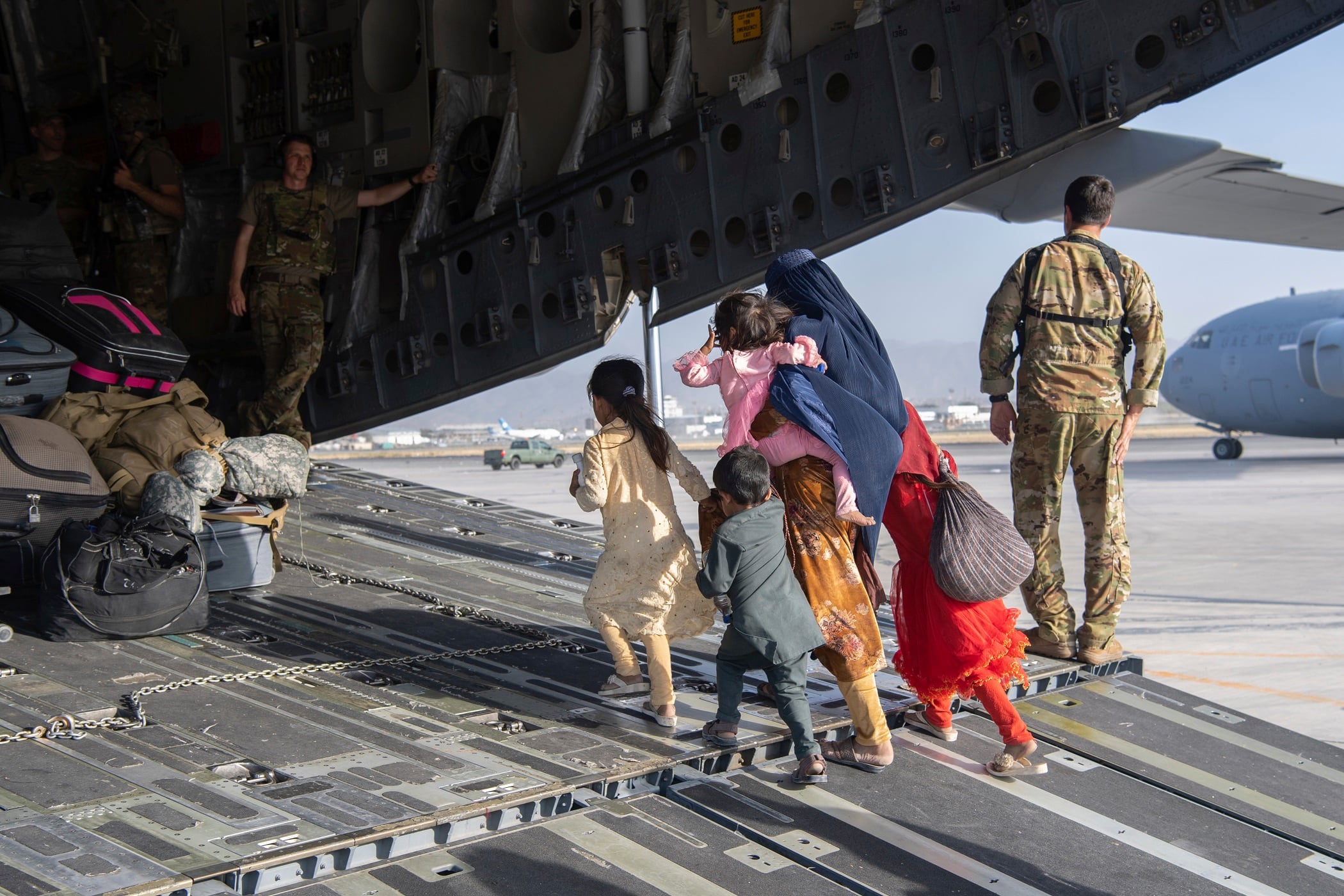Editor’s note: For this story, Military Times spoke to multiple U.S. service members, as well as Afghans who assisted the U.S. during the war in Afghanistan. Those interviewed were granted the use of aliases or first names due to fear of jeopardizing the safety of their Afghanistan-based family members.
A paratrooper infantryman for the 82nd Airborne Division was preparing to welcome his sister from Afghanistan to the United States at some point over the next few months.
The paratrooper, who goes by Mojo, said his sister had been granted admission to the U.S. Refugee Admissions Program, or USRAP, as part of a special exemption issued by former President Joe Biden in 2022 that allowed family members of U.S. service members to immigrate to the country.
Mojo is from Afghanistan and began working as an interpreter for the U.S. military in 2019 before eventually immigrating to the U.S. and joining the Army.
The rest of his family — his mother, father, younger sister and two brothers, both of whom helped the U.S. military during the war in Afghanistan, Mojo said — had already safely moved to the United States.
Mojo’s sister was supposed to be the last one to make the pilgrimage, and she and her husband had completed the extensive security vetting and medical screening necessary to evacuate Afghanistan and enter the United States.
On Jan. 20, 2025, those plans collapsed with the stroke of a pen.
That day, President Donald Trump signed an executive order that suspended the U.S. Refugee Admissions Program beginning Jan. 27, in what the decree described as an effort to ease the undue stress that immigration had placed on states’ infrastructures.
Within 90 days, per the order, the secretary of Homeland Security will submit a report on whether the program should resume. After that, a new report will be submitted every 90 days thereafter, until Trump deems the program fit to begin again.
Now, Mojo’s sister must wait to learn whether she’ll be able to immigrate to the United States, all while being threatened because of her brother’s involvement with the U.S. military, Mojo said.
“She’s been hunted by the Taliban for a pretty long time — since the fall of Afghanistan,” he said.
Her story is a common one.
Military Times spoke with multiple U.S. service members and Afghans located in the United States who said recent executive orders suspended their families’ relocation efforts, further exacerbating an already perilous situation in which family members fear for their lives due to their affiliation with the U.S. government.
On the same day Trump suspended USRAP, he also issued an executive order entitled “Reevaluating and Realigning United States Foreign Aid” that stopped funding for the travel of individuals with Special Immigrant Visas, which are awarded to Afghans who were employed by the U.S. government as a way to immigrate to the United States.
Together, both of the executive orders completely stopped the relocation of Afghan wartime allies, said Shawn VanDiver, president of AfghanEvac, an organization that helps Afghan allies relocate.
AfghanEvac estimates that 200 family members of U.S. troops are in Afghanistan and attempting to flee the Taliban, along with another 150,000 to 250,000 Afghans who are trying to immigrate to the U.S.
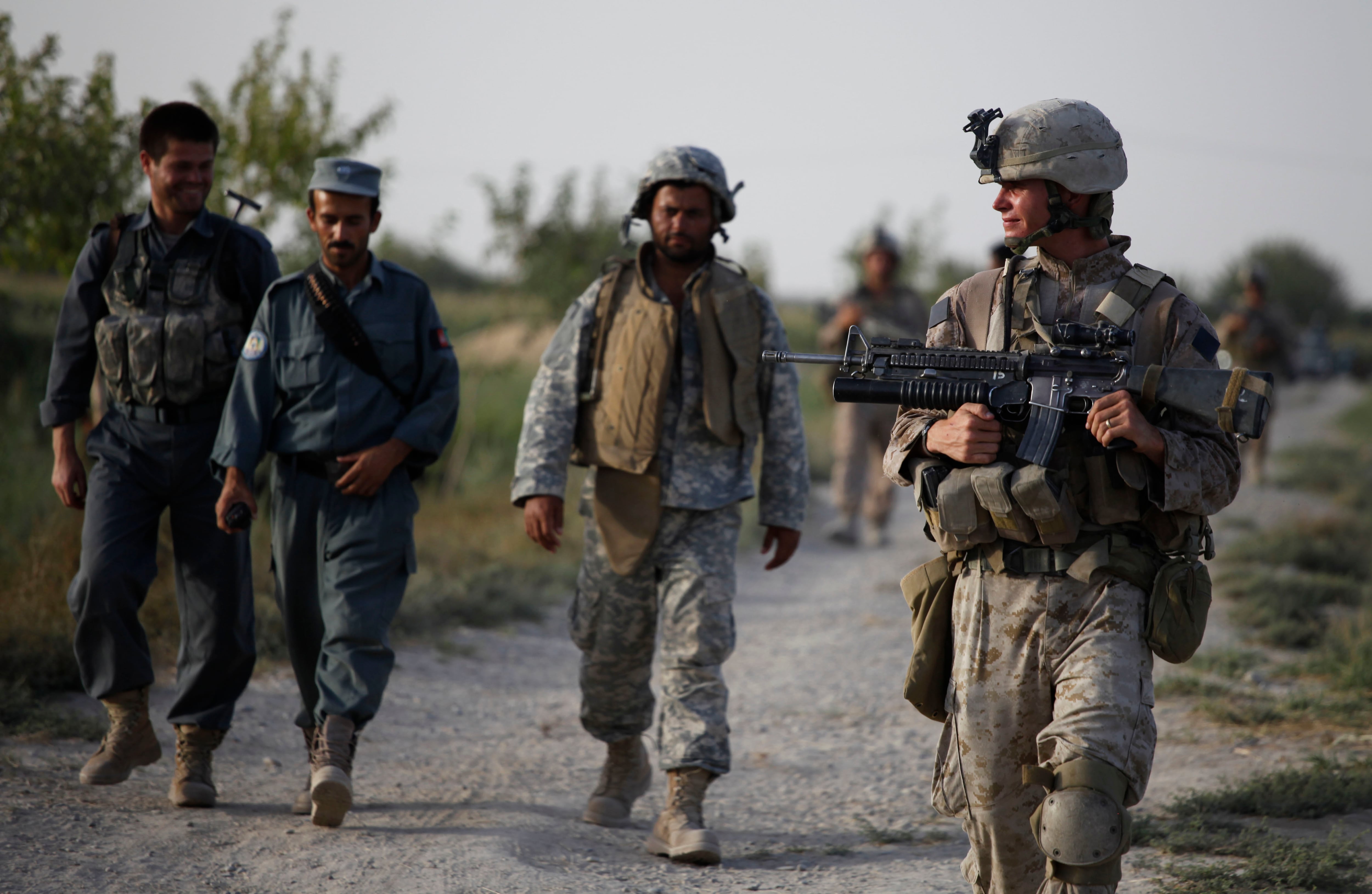
‘Salt in the wound’
Zahra, another U.S. soldier who enlisted in 2021 before the collapse of the Afghan government, said her mother, father and three siblings — all under age 15 — are currently stuck in Afghanistan. The executive order halting USRAP is just another in a series of complications for getting her family stateside.
It’s “salt in the wound,” said Zahra, who requested Military Times not reveal her last name to protect her family members’ identities.
The entire immigration process through USRAP — which she’s been navigating for three years with little success — is what frustrates her the most.
“What we were told is that our families are priorities three years ago,” she said. “If they did prioritize our families, they would’ve been out.”
Zahra said her family underwent extensive interviews, some that lasted eight hours, in 2024. They were told their next step would be to evacuate to a third location for processing.
That day has yet to come, and the new executive order has provided yet another obstacle. While she waits, Zahra said she constantly fears for her family’s safety.
Zahra can only communicate with her family through the encrypted messaging platform Signal because of safety concerns, she told Military Times. She can’t send them pictures. Calling them in public is too risky. She’s worried the Taliban will inspect their phones at a random checkpoint and see something that endangers their lives.
Her fear is furthered by grim stories she’s heard from fellow troops.
Zahra is part of a group chat with other U.S. service members whose families are stuck in Afghanistan. They don’t reveal their identities for the sake of safety, but she said members have shared stories of individuals being hunted — and in some cases murdered — prior to evacuating.
“The safety in that country is never fine,” she said. “You’re just counting your luck ... how long you can be lucky before you get caught.”
Fighting for an exemption
In addition to U.S. troops, Afghan partner forces and allies who assisted the U.S. military during the war in Afghanistan — and who are now safely in the United States — said they’re also experiencing significant roadblocks to getting their families into the U.S.
Atiqullah, a former Afghan interpreter for the U.S. Army from 2009 to 2014, said he came to the United States in 2021 under asylum but is still struggling to help his family escape the dangers of the Taliban. He asked that Military Times only refer to him by his first name to protect his family members’ identities.
“Right now, they’re hunting everybody,” Atiqullah said of the Taliban.
His brother, who also served as an interpreter for the U.S. military and now lives in the United States, has a wife and children stuck in Afghanistan. They were approved for Special Immigrant Visas and were readying themselves to be transferred to another location before coming to the United States. The executive order has delayed that process, Atiqullah said.
Atiqullah visited the U.S. Capitol on Feb. 6 with several other Afghans in similar situations – a visit that was facilitated by Central Virginia Afghan Advocates, a grassroots organization that advocates for Afghan evacuation and family reunification.
The group met with the offices of several representatives, including staff of Sen. Mark Warner, D-Va., and Sen. Tim Kaine, D-Va. They shared their individual stories with hope that it would lead to an exemption to the executive order for those stuck in Afghanistan.
After the meetings, Atiqullah was optimistic, he said.
“They gave us lots of hope,” he said. “We will see.”
RELATED
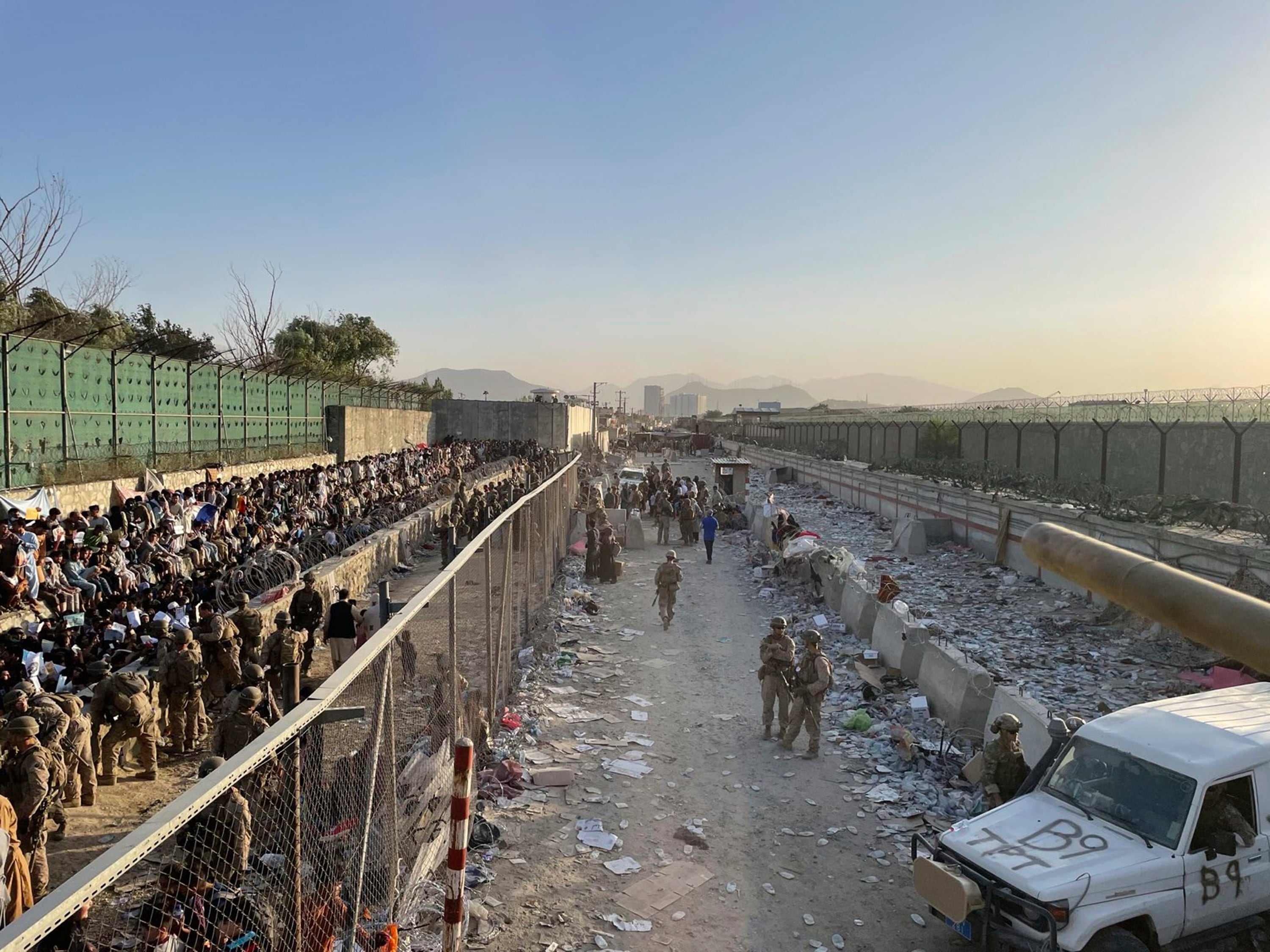
Also part of the cohort that traveled to the Hill on Feb. 6 was Zahir, an Afghan currently living in the United States whose family is stuck in Afghanistan. He applied for the U.S. family reunification program but said the recent executive order paused his family’s processing.
Zahir, who asked to be referred to only by his first name to protect his family members’ identities, shared his story with representatives.
As a former captain of the Afghan National Army, Zahir worked with the U.S. military during the war in Afghanistan.
He traveled to the United States in 2021 through a professional military exchange training program between the United States and Afghanistan. While there, the Afghan government collapsed, and he was granted asylum for his safety, he said.
While Zahir is currently chasing what he refers to as the American dream — studying finance at Virginia Commonwealth University — his five brothers, three sisters and mother are still in Afghanistan, and they fear for their lives because of Zahir’s affiliation with the U.S. military.
The Taliban already gunned down his brother in 2019, thinking it was him, Zahir said. He shared a photo of his brother in the hospital after the incident, asking that it not be published in order to protect his brother’s identity. His brother survived the injuries.
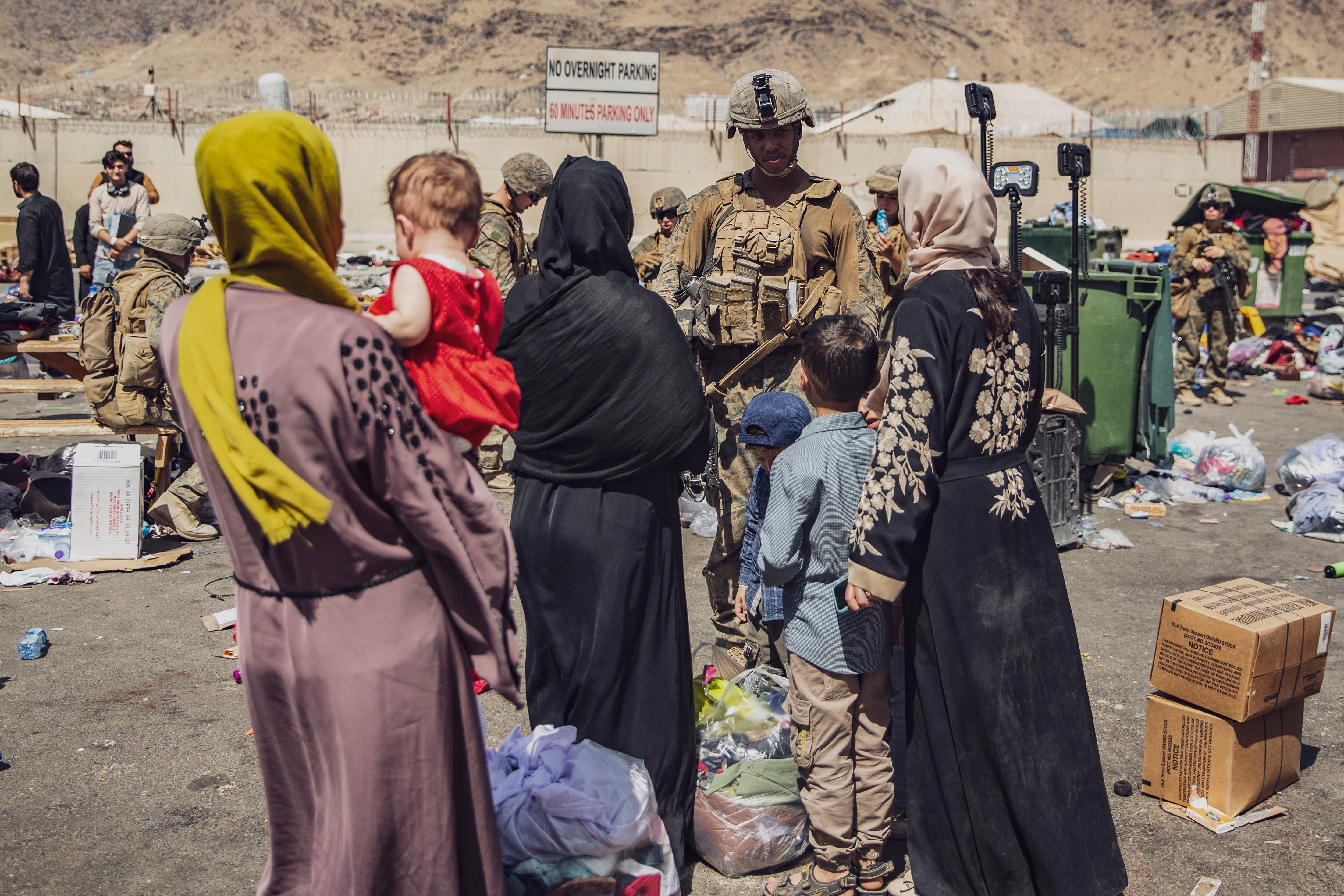
Orders create confusion
Riane Donoho, a Marine Corps veteran who served in Afghanistan on a Female Engagement Team, is now an advocate for Afghan relocation efforts. People both abroad and in the U.S. are confused about how exactly to interpret Trump’s orders, she said.
Afghans in Pakistan who’d already been vetted and evacuated from Afghanistan in preparation for their final move to the United States were being sent back to Afghanistan after the orders were signed, according to Donoho.
“Anyone and everyone, if your feet are not on the ground in America, it doesn’t really matter where you are in the process, you are paused,” Donoho said.
That’s true for people seeking admission to the U.S. through both USRAP and the Special Immigrant Visa process, said VanDiver, the AfghanEvac president. Though Trump’s executive order pausing foreign aid didn’t specifically call for an end to the processing of Special Immigrant Visas, it removed the travel and resettlement funds that allow Afghans to relocate to the United States, he said.
On Feb. 13, the U.S. District Court for the District of Columbia issued a temporary restraining order blocking the suspension of foreign aid for existing contracts and grants that the executive order had mandated. AfghanEvac, thinking the development might pave the way for relocation efforts to resume, asked the State Department to specify what the court’s ruling means for Afghans in the process of immigrating to the United States. VanDiver hadn’t received clarification as of Wednesday.
VanDiver acknowledged that both the USRAP and SIV programs have their flaws, but he said they were continually improving.
“The system was moving, it wasn’t moving fast enough, but it had recently gotten up to speed,” VanDiver said. “Now these people are left to die.”
VP defends policy change
In addition to how the policy changes are affecting his family personally, Zahir, whose siblings and mother are stuck in Afghanistan, is worried about the effects of the executive orders in a broader sense. The orders could send a message of weakness to the world by demonstrating that the United States fails to honor its promises to current and future allies, he said.
“We fought side by side, we defended, we sacrificed, and we fought and [bled] for the same purpose, and I feel like we do not deserve to be forgotten,” Zahir said. “Our families do not deserve to be forgotten, because we were the people that stood with the United States military.”
Zahir hopes the order affecting USRAP will be reviewed and amended. As of Wednesday, there had been no indication of a shift in policy or an exemption for Afghan refugees. And Vice President J.D. Vance, a Marine Corps veteran who served in Iraq, has defended the policy change.
On Jan. 25, five days after Trump issued the executive order, Vance appeared on CBS’s “Face the Nation” and said he wasn’t confident in the United States’ security vetting of those in the U.S. Refugee Admissions Program.
Vance said he knew of cases in which refugees who went through the vetting process were found to have been planning terrorist attacks against the United States. He cited the case of an Afghan immigrant in Oklahoma who was arrested for plotting an Islamic State-inspired terrorist attack on Election Day.
CBS anchor Margaret Brennan rebutted that it was unclear whether the individual, Nasir Ahmad Tawhedi, had been radicalized before or after he’d been vetted.
Tawhedi worked for the CIA in Afghanistan. He entered the United States in 2021 on parole status for a Special Immigrant Visa, meaning he was granted legal presence in the country temporarily while waiting for his SIV to be processed. He was still on parole status at the time of his arrest in 2024, according to the criminal complaint.
“Now that we know that we have vetting problems with a lot of these refugee programs, we absolutely cannot unleash thousands of unvetted people into our country,” Vance said.
VanDiver argued that the system worked in this case, as the U.S. government was able to intervene before Tawhedi was granted permanent residence.
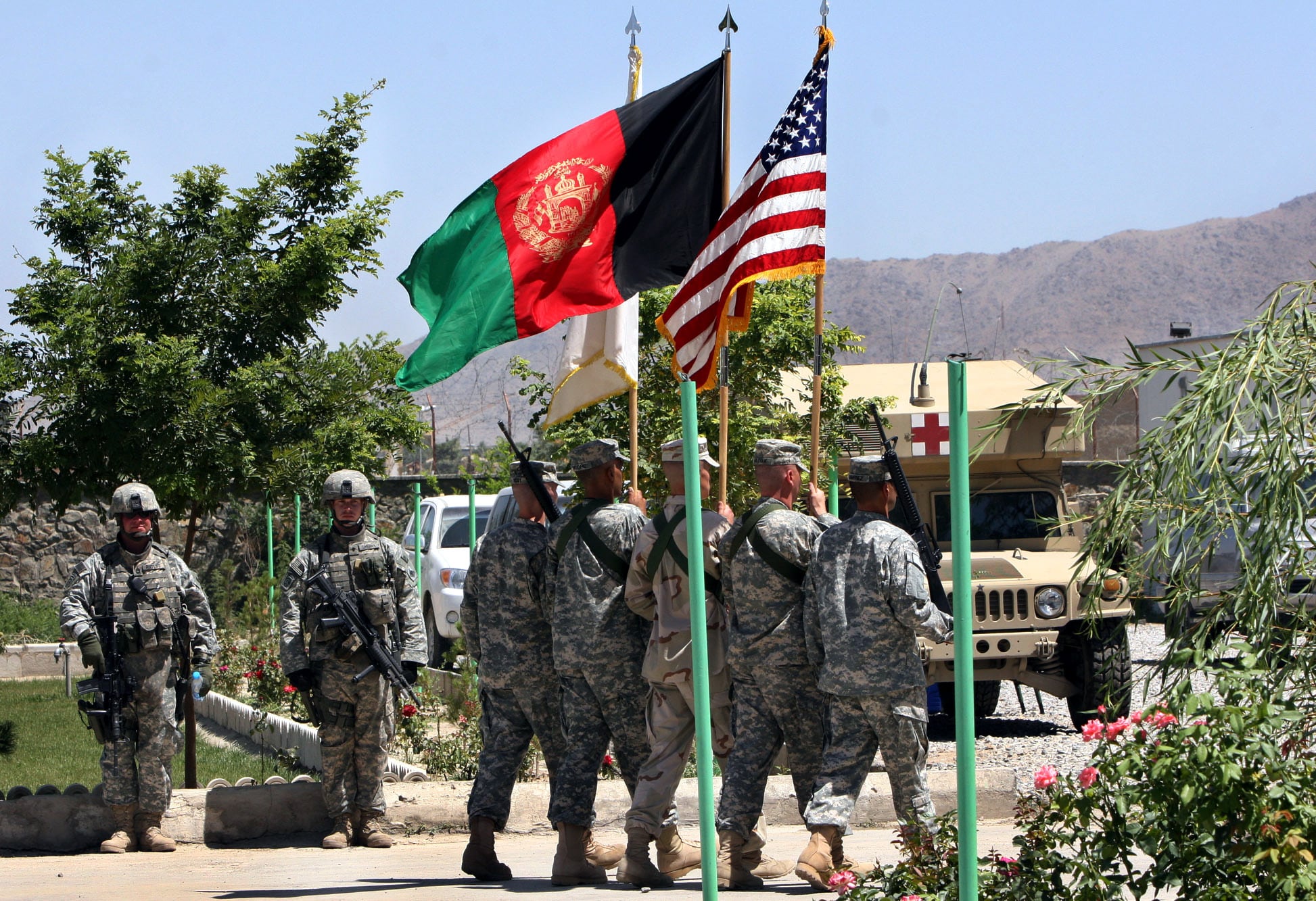
A target on her back
Mojo, whose sister is stuck in Afghanistan, immigrated to the United States in 2021 and became a citizen in April 2024, shortly before joining the U.S. Army.
His sister is now being chased by the Taliban, other terrorist organizations and criminals who kidnap those with U.S. ties for ransom money, Mojo told Military Times. Everyone in her neighborhood is aware of her family’s involvement with the U.S. government, which has endangered her life.
“If something happened to her, like what really, really gives me anxiety — makes me super depressed — is that I cannot do anything,” Mojo said. “I cannot leave this place, I cannot, you know, go save her. I’m very, very limited with the things that I can — I’m able — to offer.”
Mojo’s military supervisors are advocating for him and his family, he said. He continues to hope the executive order’s ban of Afghan refugees was simply a mistake.
While serving the United States is the greatest honor of his life, he said, he feels like his sacrifice for the country deserves to be reciprocated with the protection of his family.
“I do have expectations from my commander-in-chief, the president, and the secretary of defense to at least prioritize or make an exception to policy for the Afghan allies and Afghan Americans,” he said.
Riley Ceder is a reporter at Military Times, where he covers breaking news, criminal justice, investigations, and cyber. He previously worked as an investigative practicum student at The Washington Post, where he contributed to the Abused by the Badge investigation.
